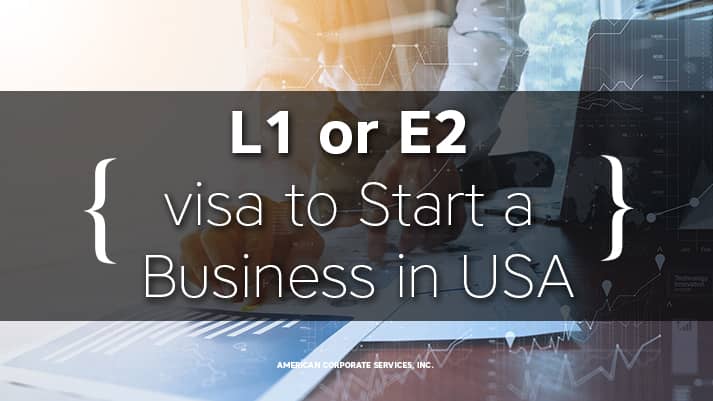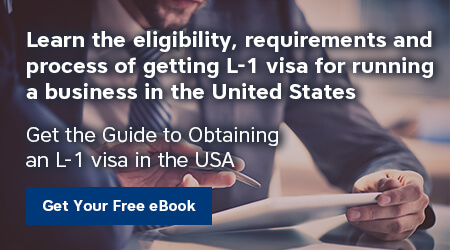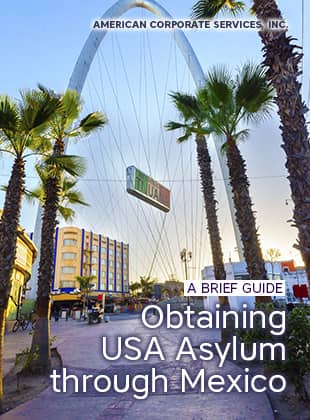If you wish to start a business or make an investment in the United States, or if you want to find a way to stay in the U.S. while you are waiting for your Green Card, you will need to have a valid visa. The L-1 and E-2 visas are two options that often chosen by businessmen.
These 2 visas share some common grounds, like they are both nonimmigration visas, you need a business plan before you apply for the visa, your spouse are authorized to work in the U.S., and your child can go to school in the U.S. However, there are several significant differences between them.
The underlying idea of these two types of visas are very different.
If you come from a country, which maintains a treaty of commerce with the United States, and you wish to invest a substantial amount of money in the U.S., you can apply for an E-2 visa.
If you are an executive or manager of a foreign company, and you wish to come to the U.S. to start an affiliated company or to work in an existing affiliated company as an executive or manager, you can apply for L-1 visa.
Who can apply for L1 or E2 visa?

As you can see, the E-2 is designed for people who comes from a treaty country. Here is a current list of countries with which the United States maintains a treaty of commerce and navigation: https://www.business-visa-usa.com/business-visas. It includes many countries such as China (Taiwan), Japan, Korea (South), Philippines, Singapore, etc.
As you may have noticed, the mainland of China is not on this list, but this does not necessarily mean the end of the story. It is relatively easy to get the citizenship of some countries that are on the list. For some countries, it only takes 3 months to become a citizen. So, if you are a citizen of China (Mainland), you can firstly obtain the citizenship of one treaty country, then apply for E-2 visa as that country’s citizen. If you want to know more details about this, please contact attorneys.
On the other hand, L-1 visa does not have this treaty country requirement. That is to say, it does not matter which county you are coming from, and if you can meet the requirement, you can apply for it.
Do I need to have a foreign company?
Unlike L-1 visa, E-2 visa does not require the existence of a foreign company, as long as you can make a substantial investment in the U.S. You can start up your business from new in the US under an E-2 visa.
However, L-1 visa requires that you have worked in a foreign company for at least one year, before you are transferred to the U.S. company. It also requires the foreign company and the U.S. company has a qualifying relationship such as parent company, branch, subsidiary, or affiliate. In short, the typical situation for an L-1 visa is that you have worked for an existing foreign company, the company is opening a new business in the U.S., and you are sent to work for the new business in the U.S. If you want to know more details about L-1 visa, please contact attorneys.
How long can I stay in the U.S.?

Qualified E-2 investors will be allowed a maximum initial stay of 2 years. After the 2-year initial stay expires, you can apply for an extension. There is no limit to the number of extensions. So, if your request for extension of stay can be granted every time, hypothetically, there is no maximum amount of time for staying in the U.S.
The length of initial stay for L-1 visa varies depending on whether you are establishing a new company in the U.S., or you come to work for an existing company. If you are entering the U.S. to establish a new company, you will be allowed a maximum initial stay of 1 year, but if you are going to work for an existing U.S. company, you will be allowed a maximum initial stay of 3 years. After the initial stay expires, you may also apply for extensions, and each time you may have an extension for up to 2 years. However, there is a 7 years’ maximum limit on L-1 visa, which means you cannot stay in the U.S. for more than 7 years under L-1 visa.
As we have seen, the L-1 visa and E-2 visa could be very different as to their requirements and effects. The E-2 visa seems to have more benefits, but it is also harder to obtain. However, everyone’s situation is different, and it is really your decision as to which one works the best for you. Attorneys are always ready to provide you our detailed information and professional advices.
Disclaimer: The article contains general information and does not include legal advice on a particular case.
Xili Zou, Paralegal, ACS Inc.










